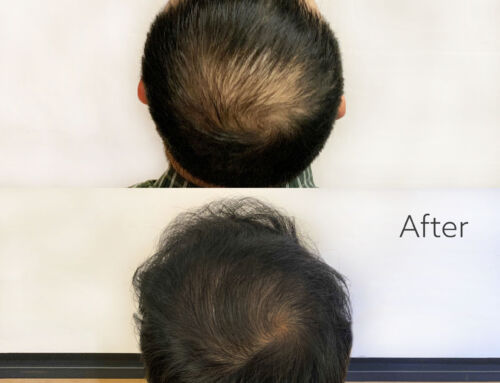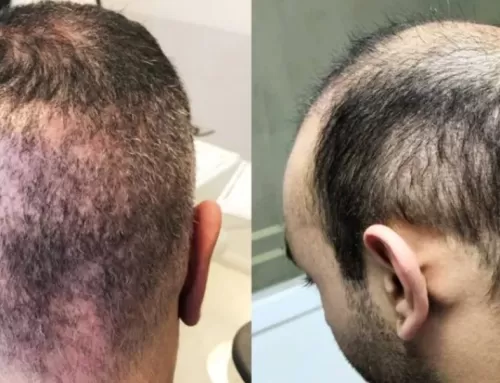After you undergo a hair transplant surgery, you will notice a number of side effects during the recovery process. It’s important that you understand what these side effects are and how they can best be dealt with in order to ensure a speedy recovery that is free from major complications. This is just one way that our team prepares patients for their hair loss treatment.
Right now, we’d like to take a moment to consider the nature of pain and discomfort following hair transplantation. By giving you some basics on the issue, you’ll have more realistic expectations about the entire surgery and recovery process.
About Hair Transplant Surgery
Some basics on the initial procedure first. During hair transplant surgery, follicular units from the back of the head are taken and transferred to the front of the recessed hairline. This allows healthy, natural hair to grow where there is no hair present.
How common is pain and discomfort after hair transplant surgery?
Both pain and discomfort are common after a patient undergoes hair transplantation, but this is a normal part of the healing process. In general, the pain is very mild, and quite tolerable. Most patients are able to return to work the next day so long as their occupation does not involve any strenuous physical activities. Patients will notice that the pain diminishes in the days the follow surgery.
Take Your Recommended Pain Medications As Needed
If patients do notice any discomfort, they can take any recommended or prescribed pain relievers as directed by their surgeon. In general, these pain relievers will be non-aspirin and non-ibuprofen based as these kinds of pain medications can thin the blood and cause major issues with healing and wellness.
Focus on Healing and Resting
As you are healing, it’s important that rest and wellness are your primary concerns. This means refraining from any strenuous physical activities and heavy lifting.
Follow Your Post-Operative Instructions to the Letter
One way to minimize swelling and other kinds of discomfort is to follow all instructions provided to the letter. This includes proper positioning of the head as well as proper use of ice packs and cold compresses. Keeping all these instructions in mind is a sure way to reduce pain in the short-term and improve the results of your hair transplant in the long run.
Speak with Our Team for Pressing Needs
Sometimes patients will experience serious discomfort or pain as they recover. These kinds of sensations are not normal since pain is usually minor and manageable. This could be the sign of a surgical complication of some kind.
If you should have any pressing issues with regard to discomfort, bleeding, or other serious side effects, be sure to get in touch with our team right away. This will allow us to treat any urgent needs as soon as they arise.
Learn More About Your Options for Hair Restoration
If you would like to learn more about hair transplant surgery and your many other options available for treating baldness and hair loss, be sure to contact our c, MA hair restoration specialists today. Our entire team looks forward to meeting you in person and helping you have a full, beautiful head of hear.






